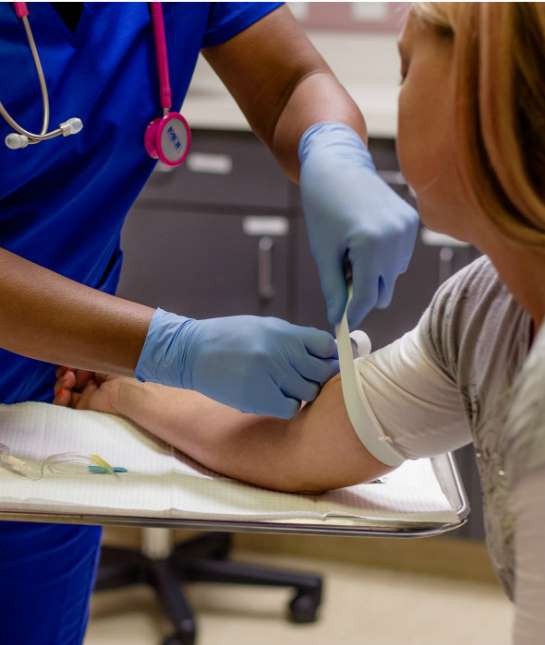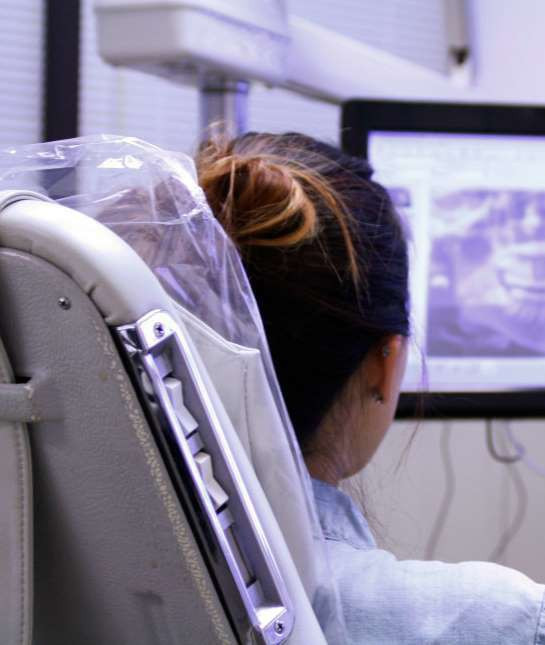Tests every woman should have
Regular health check-ups and medical screenings are key to preventing premature death or even expensive treatments.
The earlier symptoms are detected, the sooner treatment can begin, which is often accompanied by better long-term outcomes and quality of life.
It’s true that appointments can be complicated and time-consuming, and they can be unpleasant. But that doesn’t mean they should be avoided. Here are 19 types of exams you should have on your calendar.
|
Pap Smear and Pelvic Exam
Women age 21 and older should make an appointment with their obstetrician-gynecologist for a cervical exam and Pap test. Depending on your age and your Pap test results, your doctor may recommend a follow-up exam every year, every two years, or every three years.
Mammography
Women in their twenties should have a clinical breast exam every few years (in addition to monthly breast self-exams). At age 40 or 50, depending on their doctor's recommendation, women should have their first mammogram. After that, mammograms should be done, as recommended by their doctor, every year or every two years to screen for early signs of breast cancer.
Dental checkup
Find a good dentist through a friend's recommendation and get checked twice a year, just like you would for your child, or like you did when you were a child. Get any treatment your insurance covers, and keep your teeth in good health.
|
Vision test
We spend a lot of time on screens, big and small, and our eyesight pays the price for it all. Annual vision exams are a fundamental part of overall health care.
Not only will you learn why you get frequent headaches, you can also get a basic screening for your retinal health, a chance to detect glaucoma early, and you may also get more information than you ever wanted about the harmful effects of screens and the need to block the eye-damaging light they emit.
Dermatology examination
No matter what your skin type is, you should check your skin regularly at home and flag any suspicious moles, spots, or growths to your dermatologist (they won’t laugh if they’re not). You’ll also want to check with your dermatologist if you notice sudden hair loss. It could be a sign of a larger health problem.
Foot examination
Years of proudly wearing high heels as a young adult can leave us with a less-than-perfect version of our feet. Pregnancy, weight gain in middle age, and other factors also contribute to changing the shape of our feet.
Regular visits to a podiatrist can help detect potential problems. They can provide treatments (and advice) to slow or prevent foot deterioration. They can also tell you what that bruise under your toenail is—it’s actually a fungus (and how to treat it).
|
Physical examination
Regardless of age, women should have regular checkups with their doctor. Initial appointments will be a starting point for health—blood pressure, height and weight, past illnesses, current concerns—and can be the first step toward treatment or reveal symptoms that would otherwise go unnoticed during future checkups. Once you reach your 20s, you should have a checkup every year.
Blood test
Blood tells you a lot about your health and can indicate health problems. Regular blood tests help monitor cardiovascular risk factors, blood sugar levels, liver and kidney function, immune system health, and hormone balance. Blood tests can also tell your doctor about your iron levels, whether you have electrolyte imbalances, and your red blood cell count.
Hearing test
Hearing loss gradually comes with age, and for some people it happens sooner than they think. Rule out other potential causes of hearing loss by getting regular checkups. Early detection can slow the progression and reduce the frustration you feel when you can no longer hear people whispering across the room.
Bone density test
Women 65 and older should have regular bone density tests. Younger women who have any risk factors for osteoporosis, such as a small frame or frequent fractures, should talk to their doctor about this test.
Digestive examination
If you’re over 50, you should make an appointment with a gastroenterologist to get a colonoscopy (in the form of a colonoscopy). While uncomfortable, this could save your life. Also see a gastroenterologist if you’re having any problems with your bowel movements, suspiciously dark stools, rectal bleeding, or even heartburn and acid reflux. They’ve seen it all, so don’t be shy.
|
ENT Examination
If you have any regular problems with your ears, nose or throat - or if you have ringing in your ears or dizziness - see an ENT. Ear infections in adults can be serious and need to be diagnosed and treated promptly.
See a psychologist or family therapist
Life changes, relationships struggle, and sometimes we know something is wrong but we don’t know exactly what it is. In times like these, even if they’re not a crisis, it can be helpful and healthy to talk to a professional. A therapist, medical doctor, or licensed family therapist can help sort through your issues, suggest therapies, and practice guiding you to change your actions or thoughts.
Allergy Screening
Seasonal allergies are common, but if you have frequent sinus infections, difficulty breathing or sneezing, nasal congestion, and excessive itching, it's time to see an allergist. Abdominal upset, which is common, can also be a sign of allergies that need to be diagnosed.
Career Counselor
Women, like men, get great benefits from work, even beyond the money they make. But when we hit invisible barriers, seeing a career coach can be a great way to figure out what to do next, or whether to stay.
Just as doctors understand how physical symptoms relate to larger health issues, career counselors will see underused skills and know the larger jobs where you can apply them.
Sleep Check
Our sleep needs change as we age, but sometimes life (and our hormones and mental state) don’t accommodate these changes. If you have trouble sleeping at night, wake up frequently or too early, or can’t fall asleep at night, see a sleep specialist. You may have to spend the night in the clinic, but they will be able to tell you whether your sleep problems are physical, mental, or both.
Genetic testing
Older women who think they are pregnant but are concerned about their health or that of their baby should see a genetic counselor. Often found at a fertility doctor or OB/GYN clinic, these trained professionals can explain the numbers and help you understand the results of the different screening tests you will have if you become pregnant.
|
Fitness Trainer
We all know exercise is good for you, both mentally and physically. A fitness trainer can help you find the type of exercise you enjoy and a regimen that will produce the changes you want. Get recommendations from friends, find a certified trainer, and be specific about what you want: muscle gain, weight loss, endurance, or flexibility. Meet with them regularly until you have established a routine, then check in periodically to make your regimen more interesting or advanced.
Nutritional check-up
Food is medicine, but only if you eat the right kind. Sometimes it can be hard to know what is good and what is not. A trained nutritionist will know what nutrients are essential and where best to get them. Get advice from your friends, decide where you think you need to change, and start eating your way to good health.





